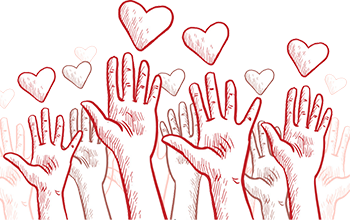





Supernatural Beliefs
Being Cursed or Bewitched: There is a widespread belief that disabilities
are a result of curses, witchcraft, or divine punishment. This can lead
to ostracization and discrimination against both the child and their family.
Ancestral Wrath: Some communities believe that a child’s disability is a
manifestation of anger from ancestors, resulting in the family being seen
as having offended their lineage.






Social Stigma
Bring Shame and Embarrassment: Families may feel ashamed of having a child
with a disability, leading to the child being hidden from the public or kept isolated.
Viewed as inferior than their peers: Children with disabilities are often viewed
as inferior or less capable than their peers, which can affect their self-esteem and
opportunities for growth.






Assumptions of
Incompetence
Assumption of Lack of Intelligence: There is a common stereotype that children with
disabilities are intellectually inferior, regardless of the nature of their disability.
This can result in them being denied educational opportunities.
Incapable of contributing to the society Children with disabilities are often seen as
completely dependent and incapable of contributing to society or their families.






Economic Burden
Cause of Financial Strain: Families with children with disabilities are perceived as
burdened financially, which can lead to neglect or abandonment of the child.
Unmarriageable: Girls with disabilities may be seen as unfit for marriage, which
can affect their future prospects and social standing.






Health and Medical
Misconceptions
Contagion: There is a misconception that disabilities can be contagious, leading
to the isolation of the child and avoidance by others.
Incurability: Many believe that disabilities are incurable, which can result in a lack of effort
to seek medical or therapeutic interventions that could improve the child’s quality of life.






Educational Exclusion
Uneducable: Children with disabilities are often thought to be incapable of
learning or benefiting from education, leading to their exclusion from schools
and educational programs.
Low Expectations: Even when allowed to attend school, children with disabilities
may face low expectations from teachers and peers, hindering their academic and
personal development.






Dehumanization
Viewed as Less than Human: Some children with severe disabilities are seen as less
than human or as objects of pity rather than individuals with their own rights and potential.
Animalistic Comparisons: In extreme cases, children with disabilities might be likened
to animals, reinforcing their dehumanization and mistreatment.






Facing Social Isolation,
family neglect and
lack of playmates
Lack of Playmates: Due to stigma and misconceptions, other children might avoid
playing with a child with a disability, leading to social isolation.
Family Dynamics: The child may be isolated within their own family, either through
neglect or overprotection, limiting their social interactions and development.






Gender Bias
Double Disadvantage: Girls with disabilities often face a double disadvantage,
experiencing both gender-based and disability-based discrimination.
This can further limit their access to education, healthcare, and social participation.






Future Prospects
Employment Barriers: There is a stereotype that individuals with disabilities are
unemployable or only fit for menial tasks, which can limit their career opportunities
and economic independence.
Dependency: The belief that children with disabilities will always be dependent on their
families and unable to lead independent lives is pervasive, affecting how they are treated
and what opportunities are afforded to them.


